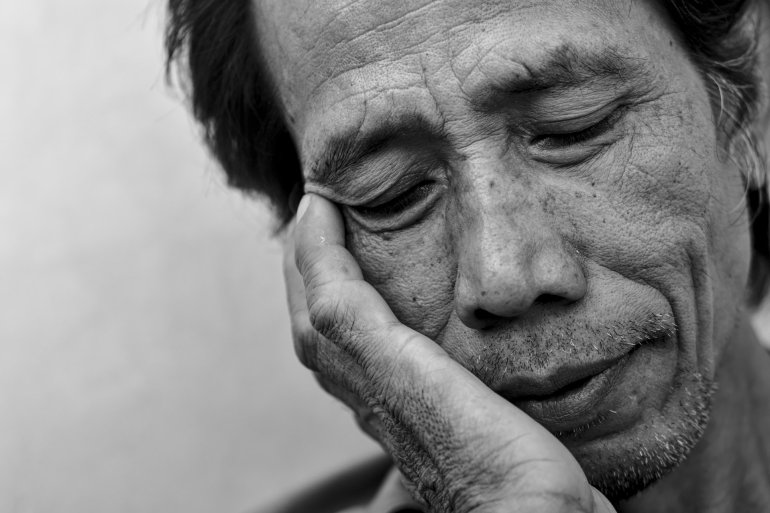Feeling comfortable and sleeping better, this is what millions of people in all parts of the world dream about, after people have lost nearly an hour and a half of sleep a day during the last 30 years, and this is often associated with fatigue, lack of sleep and disturbance.
With such an introduction, the French newspaper "Le Figaro" prepared an interview edited by the authors Nicolas Anjemouth and Emmanuel Hecht, in which Professor Pierre Philippe, Head of the University Sleep Medicine Department at Universite de Bordeaux Hospital, explained some of his findings in a book Wonderful shattering many ideas related to sleep.
Why are we tired
Judging from the question: Why are we tired?
Pierre Philippe said that fatigue is one of the most common causes of counseling, and it is of two types, physical exhaustion that makes a person "unable to do anything anymore", and mental exhaustion expressed in terms such as "I no longer want to do certain things."
Fatigue, according to the professor, is often associated with unhealthy sleep and disturbed sleep, as excessive use of screens and modern means of communication and an unstable lifestyle, in addition to a lack of physical activity and insomnia, are things that keep a person from spending a comfortable night.
Philip cautioned that the fundamental difference between fatigue and sleep deprivation should be understood.
Because the treatments that are adapted to deal with both are different, although their symptoms are similar.
Fatigue is an increasing difficulty in performing physical or mental tasks, forcing the individual to restrict his activities, even when they are enjoyable, and to treat this fatigue effectively, there is only one solution is rest.
As for the lack of sleep, which leads to staying awake, it results in poor concentration, fatigue, and difficulty performing simple tasks, and to treat it we must get a comfortable sleep of high quality, and in sufficient quantities to restore our energy and comfort.
People have lost nearly an hour and a half of sleep a day over the last 30 years (Pixabay)
7 hours 7 days
Suffering from lack of sleep - according to the professor - makes us endure tremendous fatigue that seriously threatens our balance, and we are convinced that sleep directly affects our bodies, and works on all our organs from the heart to the lungs to the brain and the immune system.
It is understood that sleep health affects the general balance of the body just like diet or physical activity, and there is a set of behaviors and rhythms that we must adopt, which is what Pierre Flip means by "sleep hygiene".
Therefore, it is necessary for the professor to learn the rule "7 x 7 = 49 hours of sleep per week", meaning that sleeping in 7 nights at a rate of 7 hours is the minimum per week.
Although sleep needs differ from person to person, and change with age, scientists agree that those between the ages of 20 and 65 years, often need at least 7 hours of sleep, 7 days a week.
Since the dawn of time, sleep has had a great physiological importance for the brain and body, just like breathing or heart function, and therefore it is linked to genetics, and therefore the genetic heritage plays an undeniable role in sleep.
Since many do not know that exposure to natural light affects the rate of sleep, the professor cautions that light fluctuations are necessary for the circadian rhythm of humans.
Because it sends strong signals to the body such as sleepiness before bed.
He advises those who have difficulty sleeping to avoid exposure to the sun after five in the evening, and those who have trouble waking up, open the windows to take advantage of the morning light, and he warned that screens play the role of the artificial sun in modern life.
Suffering from lack of sleep makes us endure an enormous stress that seriously threatens our balance (Pixabay)
Sleep debts
The professor said that sleep debts are cumulative, unlike sleep itself, and that sleep debt is very present in modern western societies due to complete ignorance of the cleanliness of sleep.
When asked about the ideal dinner to ensure a good night's sleep, Philip said that eating fewer calories at dinner is important, and he called for avoiding red meat and eating a salad to reduce inflammation in the brain and help sleep better, noting the importance of hastening food long before bedtime.
The professor said that the work of our bodies controls the hours that control the periods of organ activity, as the body temperature decreases at the beginning of the night, the heart rate decreases and the production of so-called "excitement" substances such as catecholamines sleep.
American scientist Thomas Weir has proven that a sufficiently low temperature allows deep, slow sleep, as is often the case at the beginning of the night, which is why it is important to sleep in a cool enough bedroom to get a good, deep sleep.
Complaints of insomnia increase with age, and periods of deep, slow sleep decrease (pixabay)
Insomnia and age
According to Professor Philip, complaints of insomnia increase with age, and periods of deep, slow sleep decrease, indicating that fear that can occur at any age is the driving force behind the emergence of chronic insomnia.
Flip commented that the question is, is anxiety that prevents sleep or is insomnia what causes anxiety?
It's like asking the chicken and the egg whichever comes first.
Man’s relationship with fatigue has not stopped developing for centuries, just as the language expressing it has evolved, from fatigue to exhaustion to stress to exhaustion to depression, stress, etc., as mentioned by the historian of the body and emotions, George Figarilo.

